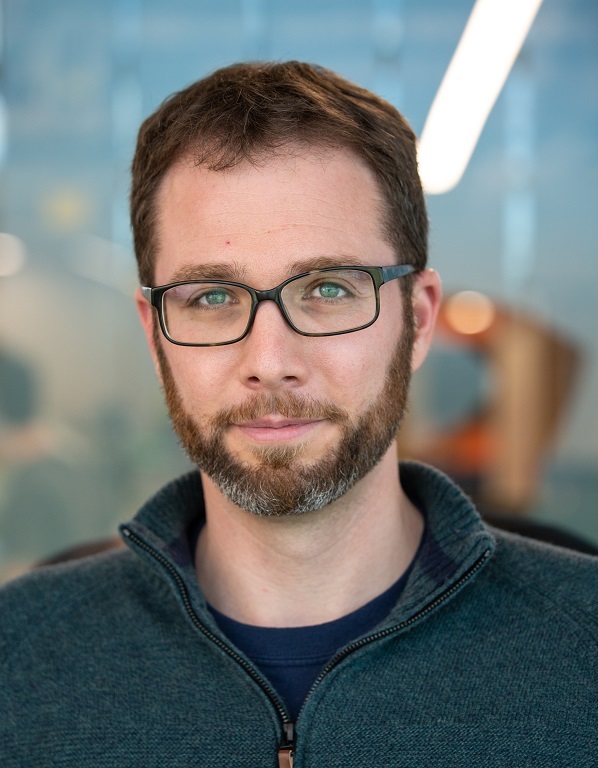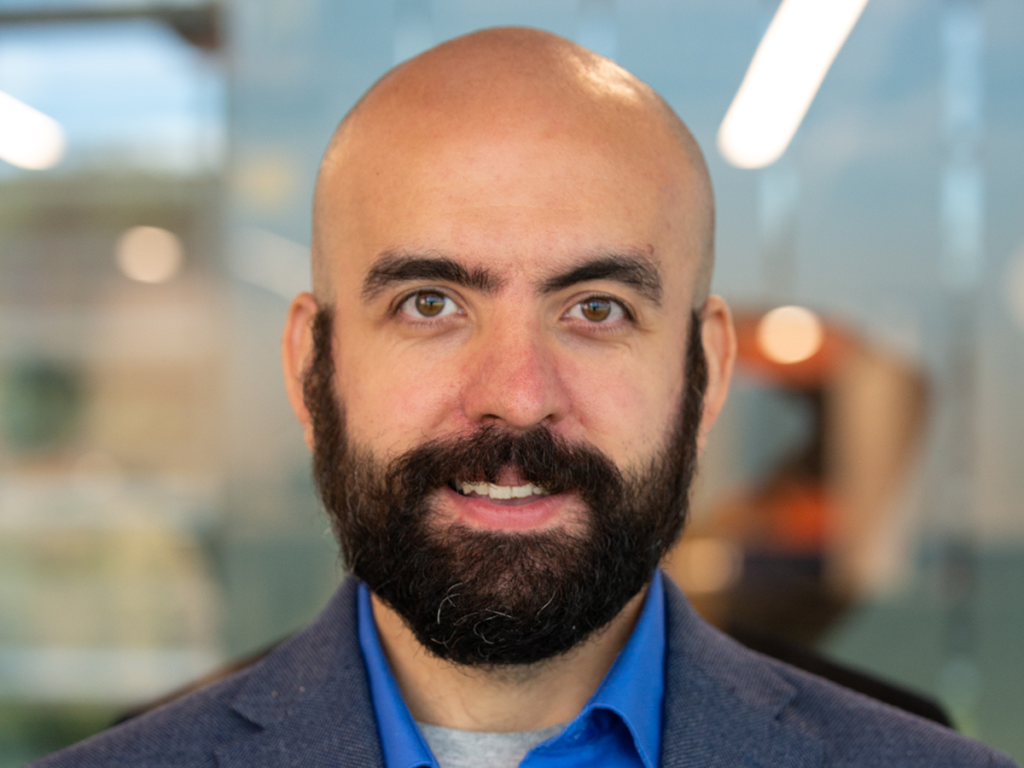When people think of robots, they typically imagine something scary or at least disruptive. This project aims to change how people see robots by using humor to illustrate that robots can be fun. Another goal is to show off the great robotics research we’re doing here at U-M.
This UARTS FEAST project will create a series of short funny videos portraying a rivalry between the robots of the ARM and MMint labs, two research labs at U-M. The videos will primarily feature robots performing pranks on other robots and are meant to be funny and engaging for the general public. The videos will be shared on social media sites and should be no more than a few minutes long each.
The two labs have several robot arms and mobile robots that will be used to create these videos. We seek students with experience in videography and sound editing, as well as comedy writing to create these videos. We also seek students to operate the robots. An important issue is that the robots are somewhat limited in what they can do autonomously, so they will need to be controlled by people to perform the pranks. Another interesting aspect to the project is how to make the robots evoke emotion despite having quite limited expressive capabilities. For example, none of the robots have faces. We will need to use the body of the robot to express their internal “thoughts” and “feelings” to the audience.
Meeting Details
TBD Weekday afternoons
Modality: In-person, hybrid (interested in the project but unable to be on campus? Contact us to inquire!)
Students apply to a specific role on team as follows:
Robotic Operator (3 Students)
Preferred Skills: Experience working with robots. Coding experience (in python). Tele-operation, e.g. from FIRST robotics, experience is a plus.
Likely Majors/Minors: CE, CS, EE, ME, ROB
Videographer I (3 Students)
Preferred Skills: Experience with filming
Likely Majors/Minors: ARTDES, FTVM, INTPERF, SI
Videographer II (2 Students)
Preferred Skills: Directing, video editing, including special effects
Likely Majors/Minors: ARTDES, FTVM, INTPERF, SI
Audio Engineer (1 Student)
Preferred Skills: Experience setting up microphones for filming. Experience with audio editing.
Likely Majors/Minors: FTVM, INTPERF, PAT
Graphic Designer & Social Media (1 Student)
Preferred Skills: Ability to design logos, intros, and thumbnails. Ability to promote content on social media.
Likely Majors/Minors: ARTDES, BBA, COMM
Comedy Writer (3 Students)
Preferred Skills: Ability to write short (less than 5 minutes), funny scripts for online videos.
Likely Majors/Minors: COMM, ENGLISH, FTVM, THTREMUS
Faculty Project Lead
 Dmitry Berenson received a B.S. in Electrical and Computer Engineering from Cornell University in 2005, where he started his robotics work in Hod Lipson’s lab. He went on to graduate from the Ph.D. program at the Robotics Institute at Carnegie Mellon University (CMU) in 2011, where his advisors were Siddhartha Srinivasa and James Kuffner. While at CMU, Berenson worked in the Personal Robotics Lab and completed interships at the Digital Human Research Center in Japan, Intel Labs in Pittsburgh, and LAAS-CNRS in France. In 2012, Berenson completed a post-doc at UC Berkeley working with Ken Goldberg and Pieter Abbeel. He was an Assistant Professor at WPI 2012-2016 and started as faculty in the EECS Department at the University of Michigan in 2016. Berenson is also a member of the Michigan Robotics Institute. His current research focuses on learning and motion planning for manipulation and he has received the IEEE RAS Early Career Award and the NSF CAREER award.
Dmitry Berenson received a B.S. in Electrical and Computer Engineering from Cornell University in 2005, where he started his robotics work in Hod Lipson’s lab. He went on to graduate from the Ph.D. program at the Robotics Institute at Carnegie Mellon University (CMU) in 2011, where his advisors were Siddhartha Srinivasa and James Kuffner. While at CMU, Berenson worked in the Personal Robotics Lab and completed interships at the Digital Human Research Center in Japan, Intel Labs in Pittsburgh, and LAAS-CNRS in France. In 2012, Berenson completed a post-doc at UC Berkeley working with Ken Goldberg and Pieter Abbeel. He was an Assistant Professor at WPI 2012-2016 and started as faculty in the EECS Department at the University of Michigan in 2016. Berenson is also a member of the Michigan Robotics Institute. His current research focuses on learning and motion planning for manipulation and he has received the IEEE RAS Early Career Award and the NSF CAREER award.
Dmitry Berenson’s research focuses on creating algorithms that allow robots to interact with the world. These general-purpose learning, motion planning, and manipulation algorithms can be applied to robots that work in homes, factories, and operating rooms. He is interested in all aspects of algorithm development; including creating efficient algorithms, proving their theoretical properties, validating them on real-world robots and problems, integrating them with sensing and higher-level reasoning, and distributing them to open-source communities. He draws on ideas in search, optimization, machine learning, motion planning, control theory, and topology to develop these algorithms and to prove their properties. He also seeks to develop algorithms which can generalize to many types of practical tasks and application areas.
 Nima Fazeli‘s research interests are Robotic Manipulation and Embodied Intelligence — enabling robotic systems to autonomously and dexterous interact with the physical world. To this end, his MMint Lab group focuses on perception, reasoning, learning, and controls through contact.
Nima Fazeli‘s research interests are Robotic Manipulation and Embodied Intelligence — enabling robotic systems to autonomously and dexterous interact with the physical world. To this end, his MMint Lab group focuses on perception, reasoning, learning, and controls through contact.
Fazeli’s research addresses fundamental questions in multi-modal (e.g., visio-tactile) perception, representation, reasoning, and acting in situ for robotic systems in uncertain environments. His long-term objective is to understand and emulate human-level physical reasoning. For example, what are our intuitions and guiding principles in designing and using tools? What are the common properties of behaviors we have developed to mitigate uncertainty when interacting with objects? How do we build and efficiently use abstractions such as “locked” vs “open” doors via context and visio-tactile feedback?
Fazeli’s research program focuses on fundamental enabling technologies for a diverse range of applications including automation, manufacturing, logistics, in-home/assistive robotics, surgical systems, and space robotics and focuses on both fundamental research and systems level engineering in realizing real-world robotic systems that we can interact with.
Students: 13
Likely Majors/Minors: ARTDES, BBA, CE, COMM, CS, EE, ENGLISH, FTVM, INTPERF, MSE, PAT, ROB, SI, THTREMUS
Meeting Details: TBD weekday afternoons, in-person/hybrid (interested in the project but unable to be on campus? Contact us to inquire!)
Summer Opportunity: Summer research fellowships may be available for qualifying students.
Citizenship Requirements: This project is open to all students on campus.
IP/NDA: Students who successfully match to this project team will be required to sign an Intellectual Property (IP) Agreement prior to participation.
Course Substitutions: CoE Honors
